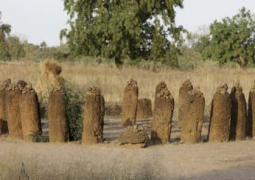What obviously needs to be said, believe me or not, is that three thirds of the struggle for the upbringing and welfare of families in many African homes lie in the hands of women. Imagine being a housewife, a mother for that matter, it will be hard for poverty to occupy a place in one's life, and for the best way to overcome this problem, struggle needs to take a centre stage. As for a real woman, ranging from high profile down to the grassroots level, struggle can be described as their second name, although the struggles differ due to the circumstances in which they find themselves. As for some women, they are lucky enough to be educated, grab a good job, married to the right man and with a nice family. For some, they are educated, employed, married with kids but not lucky to have good care from their partners, while in other instances, some are educated, not married, unemployed, unskilled and some are neither educated nor skilled and are married with children and had no other option but to engage themselves in a very hectic way of earning money in order to contribute their own quota to the well-being of their individual families either directly or indirectly as far as the struggle is concerned.
Among these women, some are fish smugglers at Tanje river side some of whom normally go to the riverside and wait for the boats to arrive, and when they do, they (the women) have to take their pans and put fish in them and take out for the petty traders and each trip they will be paid for just four fish which they continue till they have a full pan; and that's what they use to smoke and take it to Serrekunda Market for sale.
This week we had an opportunity to speak to some of the women at Tanje river side, who shared their experience with us, to know how they are struggling to make ends meet. Please read on:
Isatou Sowe is a member of the Tanje Women Association said that they are from Brufut but works at Tanje river side, so they name themselves after the village. According to her, their association is really working hard in order to help their families, 'we are all mothers and our kids are school going children, and that's why there is a need for us to struggle for the betterment of our young ones. We always come from our various homes as early as 6:00am to 7:00am just to wait the arrival of the fish boats so as to buy fish and take it home and smoke it then take it to the market for sell, and the profit we get that's what we used to help ourselves with it and pay our children's school fees, give them lunch out of it and solve some of our financial problems'
Asked whether they encounter some constrains, Isatou was quick to say that one basket of fish is sold to them D1, 000.00 or D1, 500.00 from which they sometimes have a profit of D250.00 or D300.00. " Lack of ice blocks is very disturbing because at times when we don't have it, all our fish get rotten, and at the end of the day we only throw them and lose the money we spend on it, and some times we stay here waiting for the boats till sun set before we get to our families.
For her part Isatou Fatty, also a bona fide member of the said association, lamented that since she was a child she has been coming to the river for buying and selling of fish, " since those days up to date we don't have a place where to sell our fish; we are appealing to every organisation, government, NGOs, philanthropists or individuals to give us a helping hand so that our burden can be reduced , and which will be profitable than to always transport it to home for smoking and later to the market, and in that case there will be nothing like rotten fish because as soon as we get the fish we smoke it at that spot. There will be no delayance. We are really ready to work hard for the support of our families and the nation in general, but this can't be achieved in the absence of funds. This river side is our main source of income, it's our office, it's our farmland, so we are ready to make the best use of it and we promise that if we should have help we will work harder to the extent of exporting fish.



